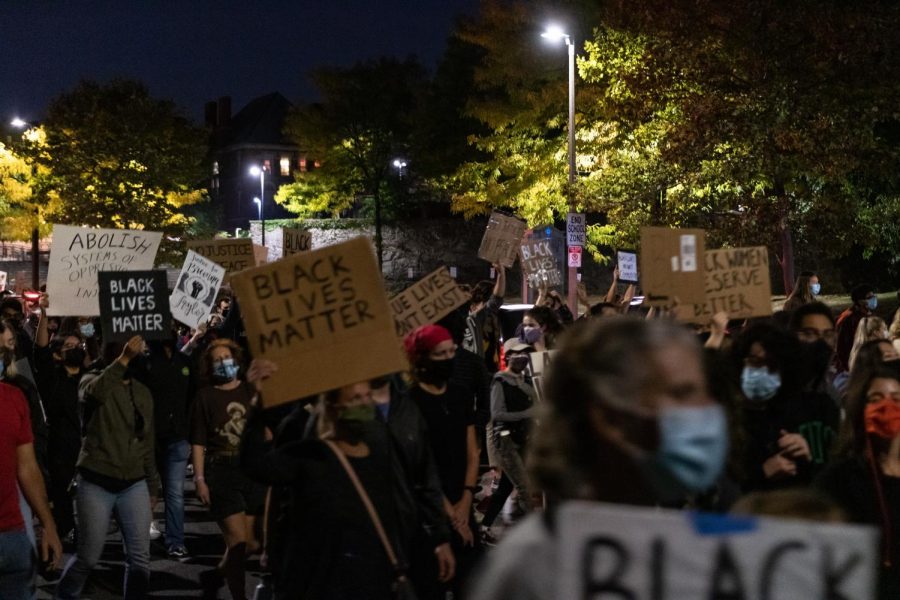Column: Online platforms like Dear PWI help combat racism
Protests in response of police brutality has sparked conversations about racism in education.
October 7, 2020
Earlier this summer, in the wake of George Floyd’s murder at the hands of a white police officer, there was a national reckoning over institutional racism. People were forced to have uncomfortable, yet important, conversations about both their personal racial biases and racial discrimination in U.S. society — conversations that continue to this day.
Dear PWI is one online platform that is a part of this movement. Dear PWI, which stands for Dear Predominantly White Institutions, is an Instagram account where people of color submit anonymous testimonials of their encounters with racism on college campuses. Hundreds of submissions poured in over the course of the summer, detailing stories of racist classmates, faculty and administrators at universities all over the United States.
I noticed that many of the stories involved microaggressions, which are “the everyday slights, indignities, put downs and insults that [marginalized communities experience] in their day-to-day interactions with people,” said psychologist Derald W. Sue.
Whether it be backhanded compliments about cultural hairstyles, ignorant questions about your background or getting you mixed up with another person from your race, microaggressions are a form of racism so subtle that people often do not recognize them for what they are. Perpetrators of microaggressions usually have no ill intent, but their unconscious biases slip through in their words and actions.
Since racial microaggressions are not as noticeable as overt racism, it can be hard to get white people to recognize that they are part of the problem. I, as an Asian American, have had to grapple with microaggressions all my life, even at a place as seemingly progressive as Northeastern. I have had fellow students give backhanded compliments that my English “is really good” or ask if my native country of Thailand had basic commodities like the internet. I complain about this to my white friends, but some invariably respond with something along the lines of “Oh, but I’m sure they didn’t mean it like that.”
Comments like this trivialize the discrimination people of color receive on a routine basis, as it gaslights us into questioning if we are the ones being too sensitive. However, research has shown that microaggressions can have negative psychological effects on the mental health of their victims.
Platforms like Dear PWI show people of color that they are not alone in facing racial discrimination, especially in subtle forms like microaggressions. It legitimizes our feelings about things people have said to us that are offensive yet not overtly racist, and the stories on the page prove that other people of color are feeling the same grievances too.
Dear PWI is also a place where white people can learn more about real experiences of people of color, especially those attending predominantly white institutions. Once they hear about how much microaggressions can affect people, they will be more aware of what exactly constitutes a microaggression and thus be less likely to repeat them.
Dear PWI is joined by many other platforms that have been created this summer to highlight racial injustices around the country, such as the “Black At” initiatives that serve to detail the experiences of Black students at U.S. high schools and colleges, including one here at Northeastern. These accounts create communities for people who feel isolated by problematic comments made towards them that fall under everyone’s radar except for theirs, while also becoming great learning resources for those who do not experience microaggressions. With online platforms like Dear PWI, we can start working towards a society that is more equitable and just. If you are looking for resources that can kick start your journey towards becoming actively anti-racist, you might not need to look further than the social media applications we all use everyday.







